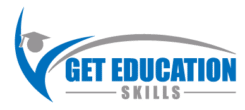A Comprehensive Guide to Key Aspects of Education
A Comprehensive Guide to Key Aspects of Education
Blog Article

Education is a pivotal aspect of personal and professional development. It encompasses a broad spectrum of elements that contribute to an individual’s growth and success. This guide provides a detailed examination of crucial aspects of education, including essential skills, examination strategies, career planning, and college preparation.
1. The Significance of Education
Education is not merely about acquiring academic knowledge; it is a transformative process that fosters intellectual and personal growth. It starts in early childhood and continues through higher education and lifelong learning. Education equips individuals with critical thinking, problem-solving abilities, and adaptability, which are essential for navigating life's challenges and contributing to societal advancement.
2. Essential Education Skills
To excel in both academic and professional environments, certain skills are crucial:
Critical Thinking: The ability to analyze information, evaluate arguments, and make reasoned decisions.
Effective Communication: Proficiency in articulating ideas clearly and persuasively, both in writing and speaking.
Problem-Solving: The capacity to identify issues, think creatively, and develop practical solutions.
Time Management: Efficiently organizing and prioritizing tasks to meet deadlines and achieve goals.
Digital Literacy: Competence in using technology and digital tools to support learning and work.
Mastering these skills enhances academic performance and prepares individuals for a wide range of professional and personal scenarios.
3. Effective Exam Preparation
Exams are a key component of the educational process, designed to assess students’ understanding and knowledge. Effective preparation strategies include:
Understanding Exam Formats: Familiarize yourself with different types of exams, such as standardized tests, quizzes, and finals.
Creating a Study Plan: Develop a detailed study schedule that allocates time for review and practice.
Using Study Resources: Utilize textbooks, online materials, and past exam papers to reinforce your knowledge.
Managing Stress: Practice relaxation techniques and maintain a balanced study routine to alleviate exam-related anxiety.
Proper preparation helps improve performance and ensures a deeper comprehension of the subject matter.
4. Career Planning and Development
Career planning is essential for achieving long-term professional success. Key components include:
Self-Assessment: Identify your strengths, interests, and career goals to determine suitable career paths.
Exploring Career Options: Research various professions, their requirements, and opportunities for growth.
Skill Development: Obtain relevant qualifications, experience, and skills through education, internships, and training.
Networking: Build professional connections and seek mentorship to explore job opportunities and gain industry insights.
A strategic approach to career planning aligns your educational and professional efforts geteducationskills with your career aspirations.
5. Leveraging Online Career Resources
The digital era provides numerous tools for career advancement:
Job Search Platforms: Websites like Indeed, Glassdoor, and LinkedIn offer job listings and company reviews.
Professional Networking Sites: Platforms such as LinkedIn help connect with industry professionals and discover job opportunities.
Online Learning Resources: Sites like Coursera, edX, and Udemy offer courses and certifications to enhance skills and qualifications.
Utilizing these online resources effectively can streamline job searches and career development.
6. Preparing for College
College is a critical milestone in higher education, requiring careful planning and preparation:
Researching Colleges: Compare institutions based on their programs, campus environment, and location.
Application Process: Prepare application materials, including personal statements, essays, and recommendation letters.
Financial Planning: Understand tuition costs and explore financial aid options, scholarships, and grants.
Thorough preparation can significantly impact your college experience and future career opportunities.
7. Supporting Educators
Educators are central to facilitating effective learning. Key aspects of successful teaching include:
Lesson Planning: Design engaging and educational lessons that meet curriculum objectives.
Classroom Management: Create a supportive and productive learning environment for students.
Student Assessment: Regularly evaluate student progress and provide constructive feedback to support their development.
Supporting educators with resources and professional development is essential for ensuring a high-quality educational experience for students.
8. The Value of General Education
General education provides a broad knowledge base and foundational skills:
Literacy and Numeracy: Essential skills in reading, writing, and mathematics.
Social Studies: Understanding of historical, geographical, and civic contexts.
Science and Technology: Knowledge of scientific principles and technological advancements.
A solid grounding in general education prepares individuals for diverse opportunities and lifelong learning.
Conclusion
Education is a dynamic and multifaceted journey that involves developing essential skills, preparing for exams, planning careers, and navigating college applications. By focusing on these critical aspects and utilizing available resources, individuals can enhance their educational experiences and achieve their goals. For more information and resources, visit Get Education Skills.